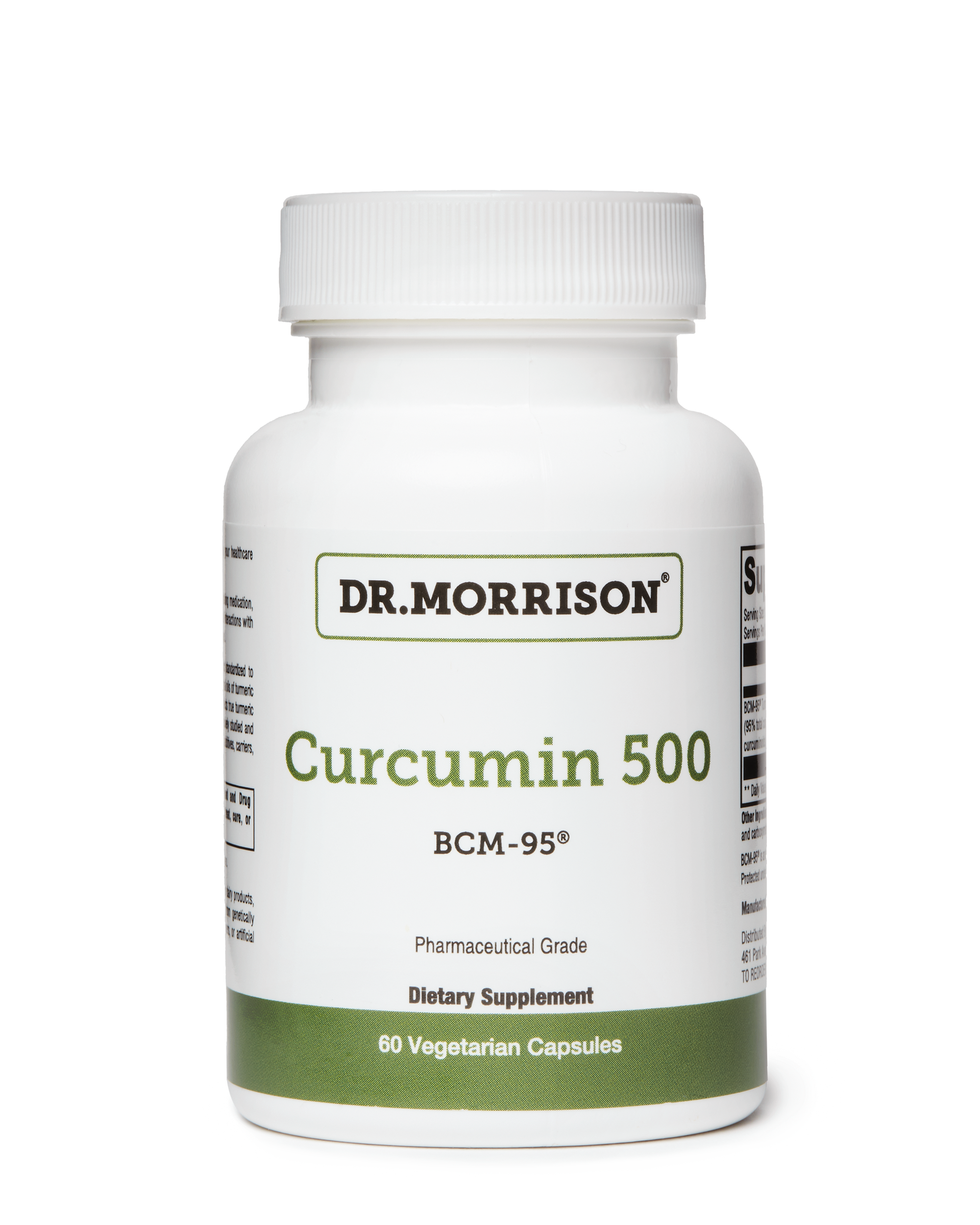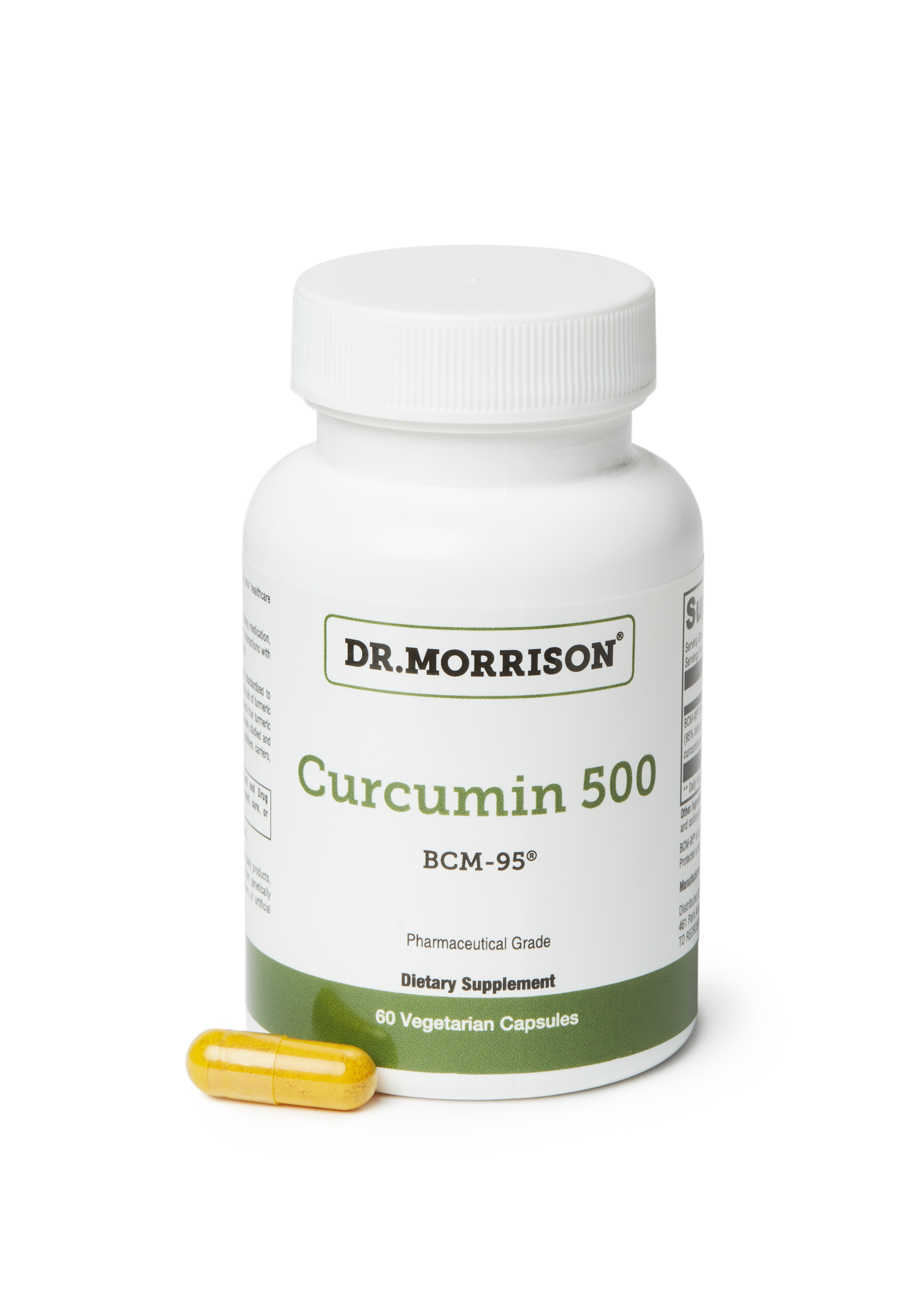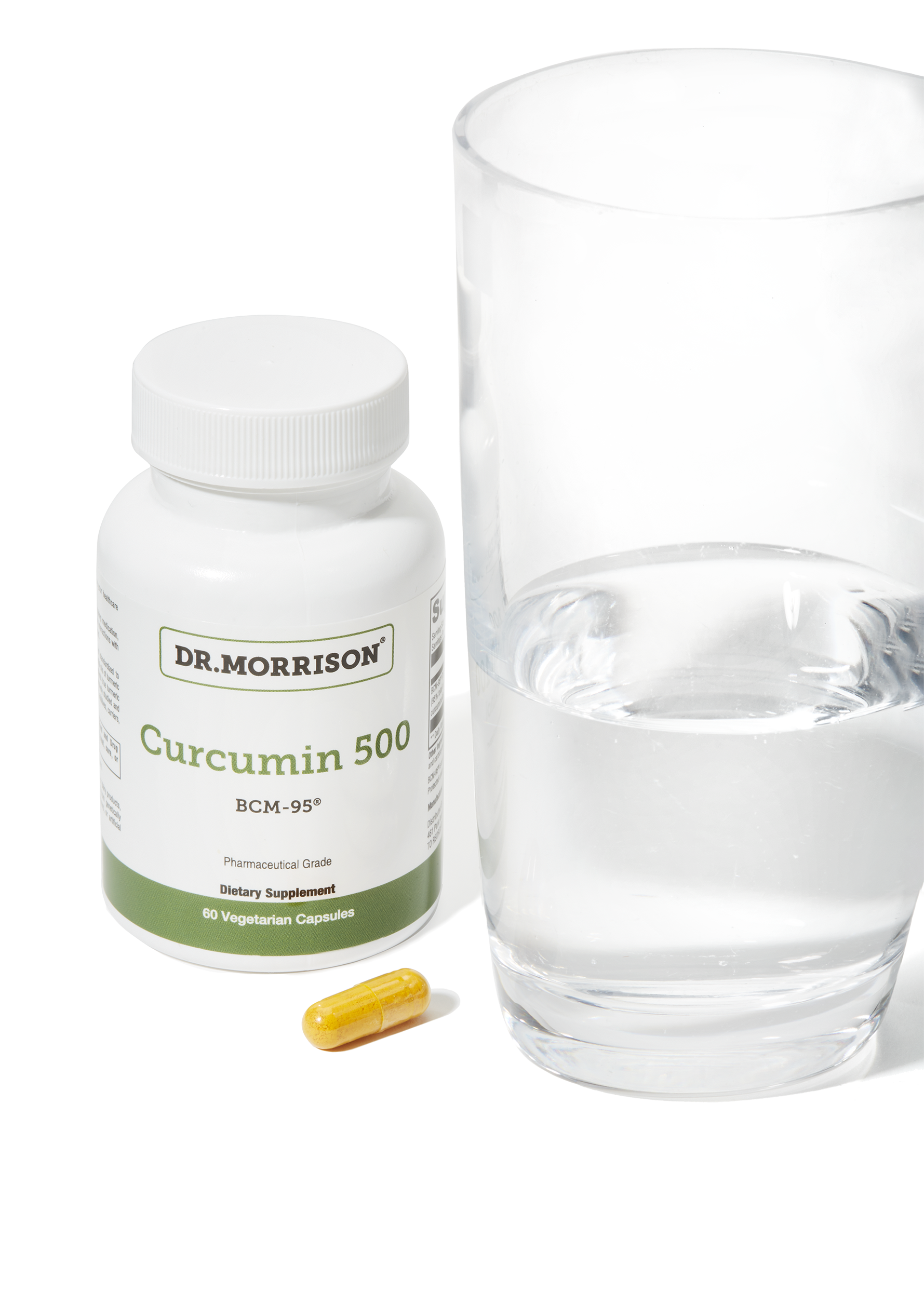Curcumin 500
$ 54.00
Size: 60 Vegetarian Capsules
Pure Full-Spectrum Turmeric Extract (Curcumin) for Powerful Whole-Body Anti-Inflammatory Support*
Please select all options.
Turmeric is an ancient medicinal rhizome and curry spice from India, with a long history of use for countless ailments. Curcumin 500 features BCM-95®—a 100% pure turmeric extract which is patented and studied to be 6.3x better absorbed than curcumin-piperine complexes, standardized to curcumin, demethoxycurcumin, bisdemethoxycurcumin, and essential oils of turmeric rhizome. This natural composition optimizes bioavailability and reflects true turmeric identity to deliver optimal health benefits.
Product Highlights:
- Provides Antioxidant and Cell-Protective Activity*
- Supports Joint Health and Helps Relieve Minor Body Pain*
- Reduces Inflammation and Promotes Healthy Immunity by Modulating Cytokines*
- Helps the Body Promote Healthy Cell Growth and Inhibit Unhealthy Cell Growth*
- Supports Brain/Neuronal Health and a Healthy Mood*
- Supports Liver Health*
- Helps Maintain Blood Sugar Levels in a Healthy Range*
- Promotes Gastrointestinal Health and Beneficial Gut Microbes*
More than 29 published studies support the broad-ranging benefits of the specialized BCM-95 extract in Dr. Morrison’s Curcumin 500. Clinical research suggests BCM-95 may be equivalent to Tylenol for relieving osteoarthritis knee pain.* In another study, 500mg of BCM-95 twice daily significantly improved mood in adults with major depression.*
Increasing evidence suggests that inflammation is at the root of countless chronic diseases from diabetes and heart disease to cancer and autoimmunity. Curcumin 500 may help to resolve chronic inflammation for total body wellness.*
*These statements have not been evaluated by the FDA and are not intended to treat or cure any disease.
The patented BCM-95 extract in Curcumin 500 has been extensively studied and shows broad efficacy without the use of phospholipids, excipients, additives, carriers, nanotechnology, or bioenhancers. This specialized extract harnesses the natural power of turmeric’s own essential oils to increase the absorption of curcuminoids by over 6-fold more than other formulations. In addition, these essential oils impart health benefits themselves that synergize with the benefits of curcuminoids.
At The Morrison Center, our patients love this natural, all-purpose anti-inflammatory supplement.
1 CAPSULE PER SERVING, TOTAL 60 SERVINGS
Turmeric Extract (Curcuma longa)(rhizome) (95% total curcuminoids complex, including curcumin, curcuminoids, and volatile oils)(86% curcuminoids)(65% curcumin) 500 mg
Other Ingredients: Capsule (hypromellose and water), dicalcium phosphate, ascorbyl palmitate, silica, and carboxymethyl cellulose.
This product is formulated to exclude: Wheat, gluten, corn, yeast, soy, dairy products, fish, shellfish, peanuts, tree nuts, egg, GMOs, artificial colors, artificial sweeteners, and artificial preservatives.
Take 1 capsule twice daily, or as directed by your healthcare practitioner.
Caution: Individuals taking medication, especially blood thinners or for cancer, should discuss potential interactions with their healthcare practitioner.
Curcumin, an active component of turmeric (Curcuma longa), and its effects on health
Turmeric (Curcuma longa) is a type of herb belonging to ginger family, which is widely grown in southern and south western tropical Asia region. Turmeric, which has an importance place in the cuisines of Iran, Malesia, India, China, Polynesia, and Thailand, is often used as spice and has an effect on the nature, color, and taste of foods. Turmeric is also known to have been used for centuries in India and China for the medical treatments of illnesses such as dermatologic diseases, infection, stress, and depression. Turmeric's effects on health are generally centered upon an orange-yellow colored, lipophilic polyphenol substance called "curcumin," which is acquired from the rhizomes of the herb. Curcumin is known recently to have antioxidant, anti-inflammatory, anticancer effects and, thanks to these effects, to have an important role in prevention and treatment of various illnesses ranging notably from cancer to autoimmune, neurological, cardiovascular diseases, and diabetic. Furthermore, it is aimed to increase the biological activity and physiological effects of the curcumin on the body by synthesizing curcumin analogues. This article reviews the history, chemical and physical features, analogues, metabolites, mechanisms of its physiological activities, and effects on health of curcumin.
Diabetes mellitus is an important issue for public health, and it is growing in the world. In recent years, there has been a growing research interest on efficacy evidence of the curcumin use in the regulation of glycemia and lipidaemia. The molecular structure of curcumins allows to intercept reactive oxygen species (ROI) that are particularly harmful in chronic inflammation and tumorigenesis models. The aim of our study performed a systematic review and meta-analysis to evaluate the effect of curcumin on glycemic and lipid profile in subjects with uncomplicated type 2 diabetes. The papers included in the meta-analysis were sought in the MEDLINE, EMBASE, Scopus, Clinicaltrials.gov, Web of Science, and Cochrane Library databases as of October 2020. The sizes were pooled across studies in order to obtain an overall effect size. A random effects model was used to account for different sources of variation among studies. Cohen'sd, with 95% confidence interval (CI) was used as a measure of the effect size. Heterogeneity was assessed while using Q statistics. The ANOVA-Q test was used to value the differences among groups. Publication bias was analyzed and represented by a funnel plot. Curcumin treatment does not show a statistically significant reduction between treated and untreated patients. On the other hand, glycosylated hemoglobin, homeostasis model assessment (HOMA), and low-density lipoprotein (LDL) showed a statistically significant reduction in subjects that were treated with curcumin, respectively (p= 0.008,p< 0.001,p= 0.021). When considering HBA1c, the meta-regressions only showed statistical significance for gender (p= 0.034). Our meta-analysis seems to confirm the benefits on glucose metabolism, with results that appear to be more solid than those of lipid metabolism. However, further studies are needed in order to test the efficacy and safety of curcumin in uncomplicated type 2 diabetes.




